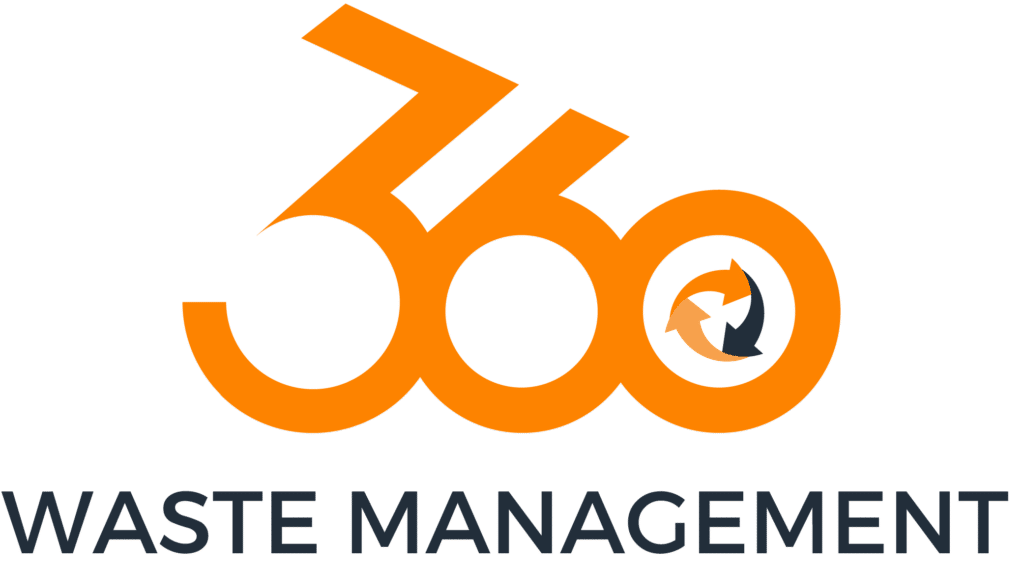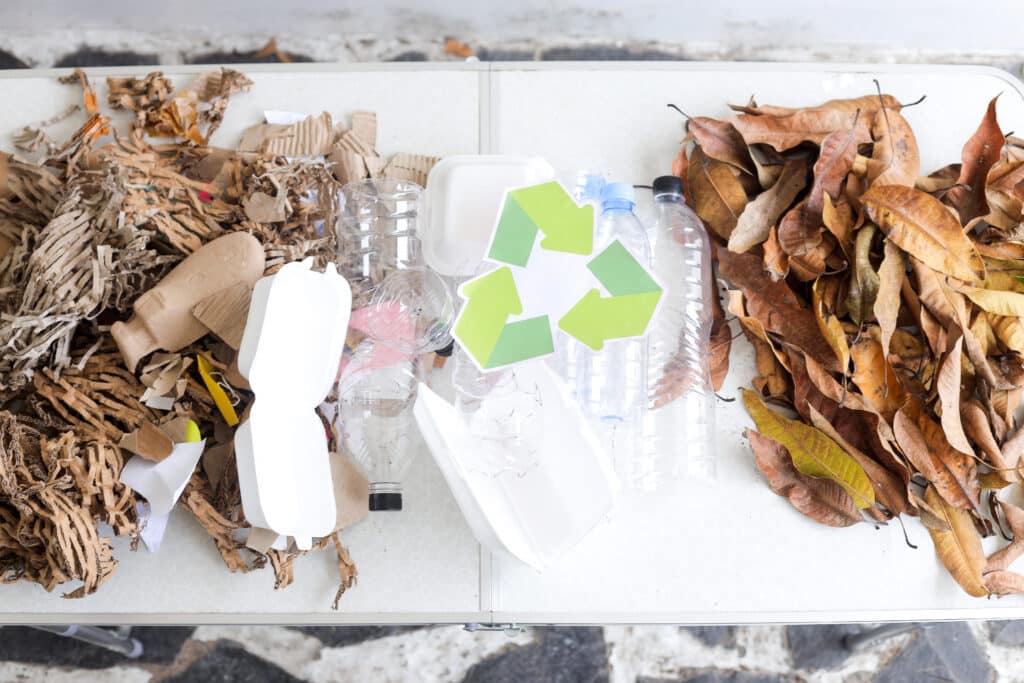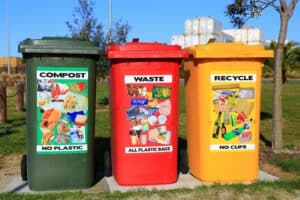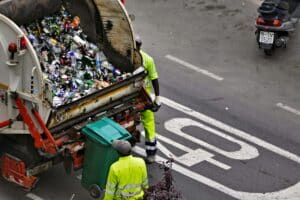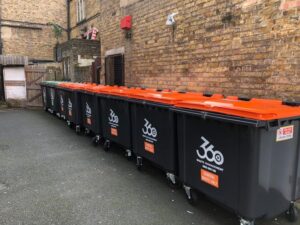For many UK businesses, recycling has long been a box-ticking exercise – something you do because you have to. But Dry Mixed Recycling (DMR) in particular has become much more than a compliance chore – it’s now a genuine cost-saving and sustainability opportunity.
360 Waste Management is helping companies across every sector turn DMR into a simpler way to reduce waste costs and improve environmental performance.
What is dry mixed recycling (DMR)?
DMR is an efficient, all-in-one recycling solution. It allows you to place clean, dry, recyclable materials together in a single bin – no complicated sorting required. The materials are separated later at a specialist facility.
Typical DMR items include:
- Paper and cardboard
- Plastic bottles and packaging
- Aluminium cans and tins
- Glass bottles and jars
Depending on your location and recycling facility, you may also be able to include items such as textiles, ink cartridges or small electricals. (We’ll confirm exactly what can go in during your free waste audit.)
We provide clearly labelled DMR bins and on-site signage to make separation effortless for your staff.
Why DMR matters for businesses
1. You Save Money
Landfill and incineration costs are rising fast – with landfill tax now above £126 per tonne. By diverting more recyclables into DMR, you reduce your general waste weight and lower disposal fees. Clean, well-managed DMR can save many businesses up to 30% annually on waste collection costs.
2. You Simplify Recycling
DMR takes the confusion out of recycling. Instead of multiple containers for each material, staff can place all clean recyclables in one bin. That means fewer mistakes, fewer contaminated loads and less time spent sorting.
3. You Strengthen Sustainability and ESG Performance
DMR isn’t just about compliance – it’s about leadership. Investors, customers and staff increasingly expect businesses to prove they’re reducing their environmental impact. DMR collections provide measurable data you can include in ESG or sustainability reports, demonstrating tangible progress towards waste reduction goals.
Recycling just one tonne of paper saves around 17 trees and uses 40% less energy than producing it from raw materials.
You can learn more about your business waste obligations in our guide.
What happens after 360 Waste Management collects your DMR
Once collected, your recyclables are taken to a Material Recovery Facility (MRF) – where optical sensors, magnets and conveyors automatically separate materials into different streams. Clean paper, metals, glass and plastics are then baled and sent to reprocessors to be made into new products.
That’s why it’s so important to keep your DMR clean and dry – a single contaminated load can be rejected, leading to unnecessary costs.
Who benefits most from DMR?
DMR is one of the simplest, most versatile waste management options for:
- Offices – large volumes of paper, packaging and drinks containers
- Retailers – cardboard, cling film and delivery packaging
- Hospitality – cans, bottles and clean packaging from front- and back-of-house
- Schools and public buildings – high recyclables output and sustainability goals
Our waste management and commercial recycling services already support businesses in all these sectors, with free DMR bins, flexible collection schedules, and detailed recycling reports.
How to get the most from your DMR system
- Keep it clean and dry: Food residue, liquids or dirty packaging can cause rejection.
- Engage your staff: Use clear signage, colour-coded bins, and quick team reminders.
- Flatten and compact: Break down boxes and containers to make every bin count.
- Audit regularly: Quarterly waste audits help monitor contamination and track progress.
- Stay compliant: Under the Environmental Protection Act 1990 (also known as the Duty of Care), all businesses are legally responsible for how their waste is stored and handled, including non-hazardous materials. Managing DMR correctly helps you meet that responsibility and prepare for new digital waste tracking and recycling regulations.
Looking ahead: Digital waste tracking and your business
Waste management regulations are evolving fast – and one of the biggest upcoming changes is the introduction of Digital Waste Tracking (DWT).
From 2026, the government will begin phasing in a new national system that requires all waste movements – including dry mixed recycling (DMR) – to be recorded digitally. This will replace paper-based Waste Transfer Notes and make it easier to track where waste comes from, where it goes, and how it’s treated.
That means every business will eventually need to log its waste activity digitally, creating a clear audit trail for compliance and sustainability reporting. The rollout will start with waste receiving sites in October 2026, before expanding to include waste producers, carriers and brokers in 2027.
Partnering with a proactive waste management company like 360 Waste Management helps you stay ahead of these changes. We’re already preparing our systems to integrate with the upcoming DWT service – so when the regulations go live, our clients will be ready.
Digital waste tracking is more than just a compliance update. It’s a step toward a more transparent, data-driven circular economy – and businesses that prepare early will benefit most.
Make recycling work for your business
Whether you’re new to DMR or looking to improve your current setup, we’ll make it simple. Our team will assess your site, identify savings, and provide a tailored DMR plan – complete with free bins, flexible waste collections and transparent pricing.
Ready to cut costs and boost sustainability? Call 01892 240541 or email office@360recycling.co.uk to book your free waste audit today.
